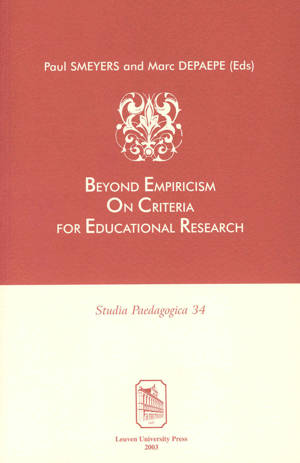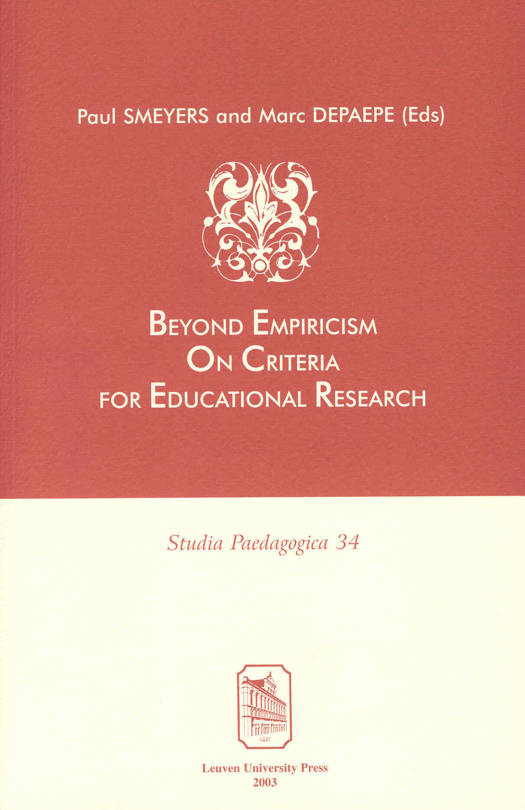
Bedankt voor het vertrouwen het afgelopen jaar! Om jou te bedanken bieden we GRATIS verzending (in België) aan op alles gedurende de hele maand januari.
- Afhalen na 1 uur in een winkel met voorraad
- In januari gratis thuislevering in België
- Ruim aanbod met 7 miljoen producten
Bedankt voor het vertrouwen het afgelopen jaar! Om jou te bedanken bieden we GRATIS verzending (in België) aan op alles gedurende de hele maand januari.
- Afhalen na 1 uur in een winkel met voorraad
- In januari gratis thuislevering in België
- Ruim aanbod met 7 miljoen producten
Zoeken
€ 33,95
+ 67 punten
Omschrijving
This book discusses educational research as a social discourse, as a discursive practice, in relation to epistemological issues, and in the light of questions of ethics. A number of historians and sociologists of educational sciences have demonstrated that the preference in the social and behavioral sciences for what was seen as a superior quantitative approach rested not just on developments within these disciplines but also and equally on external changes associated with the social context in general and with the dominance, in particular, of meritocratic values with the rise of the neo-liberal society. At the same time some of the work of certain philosophers of education over the last two decades has exposed the naivety of thinking dominated by the naive means-end schema. To a greater and greater extent, the idea of an applied science in which educational intervention is a simple consequence of understanding is being abandoned in favor of a theory of development that is realized in the intervention itself. In line with this, one sees an evolution in which the innovative role of pedagogical research can be emphasized again. Thus, "utopian" perspectives acquire a new legitimacy: the integration of empirical and philosophical research, of quantitative and quantitative methods forces itself anew upon us.
Specificaties
Betrokkenen
- Auteur(s):
- Uitgeverij:
Inhoud
- Aantal bladzijden:
- 270
- Taal:
- Engels
- Reeks:
Eigenschappen
- Productcode (EAN):
- 9789058673251
- Verschijningsdatum:
- 15/02/2003
- Uitvoering:
- Paperback
- Formaat:
- Trade paperback (VS)
- Afmetingen:
- 158 mm x 244 mm
- Gewicht:
- 476 g

Alleen bij Standaard Boekhandel
+ 67 punten op je klantenkaart van Standaard Boekhandel
Beoordelingen
We publiceren alleen reviews die voldoen aan de voorwaarden voor reviews. Bekijk onze voorwaarden voor reviews.









